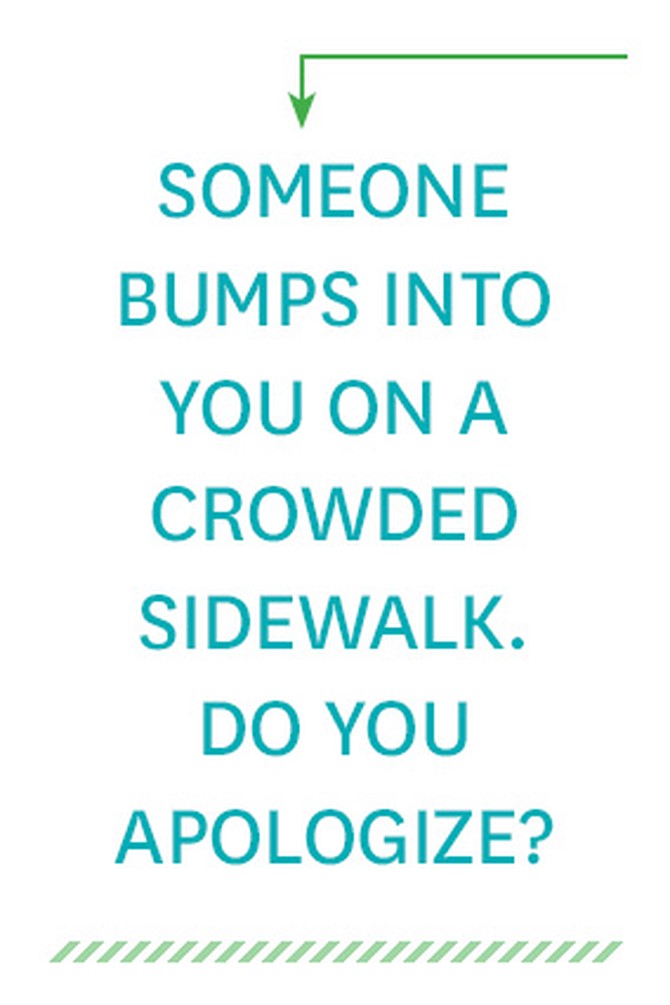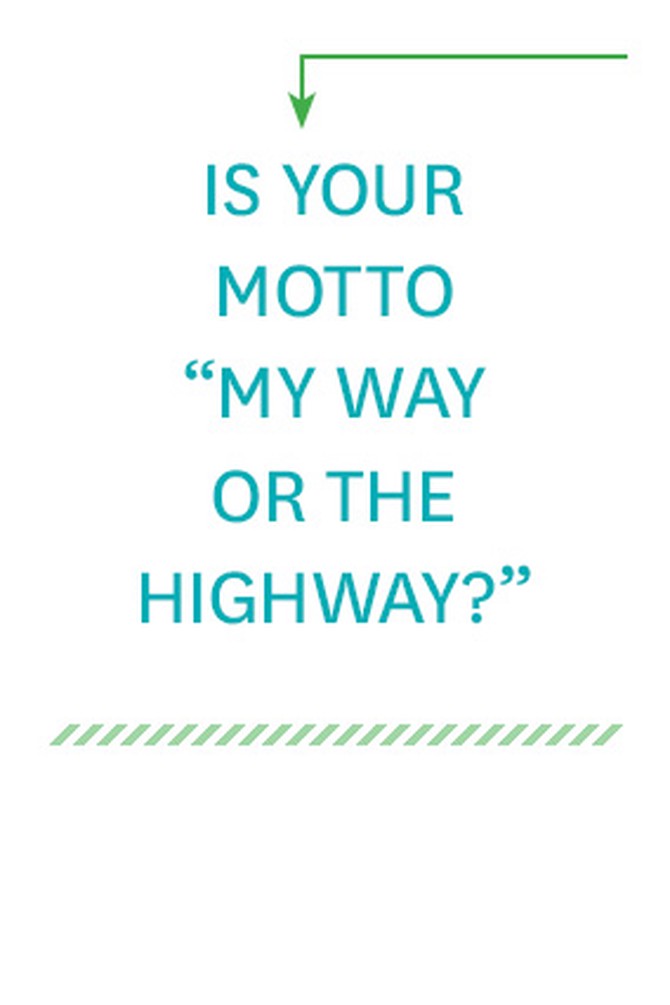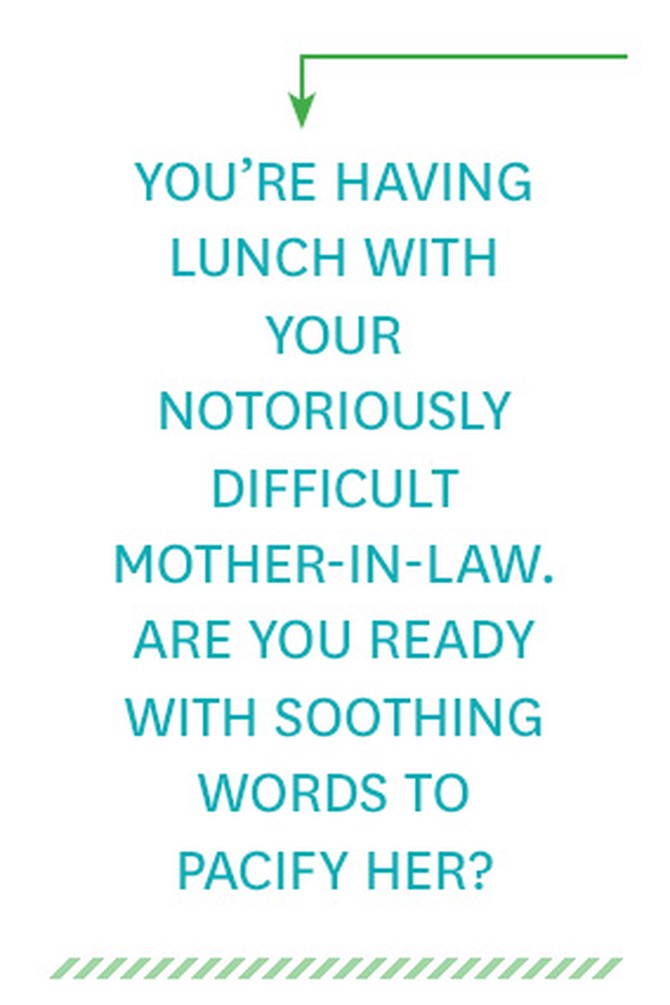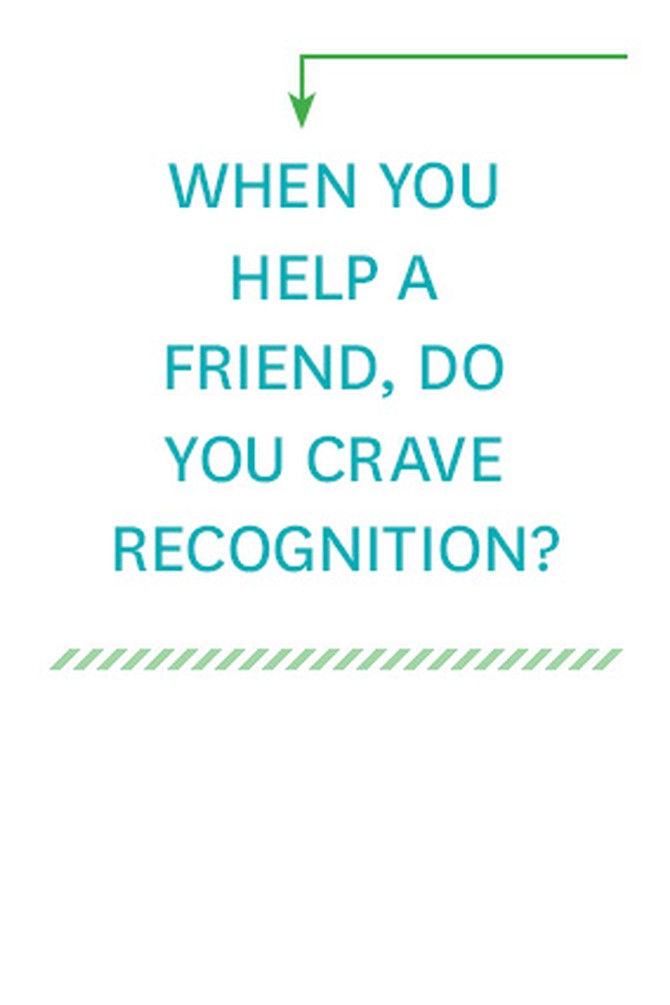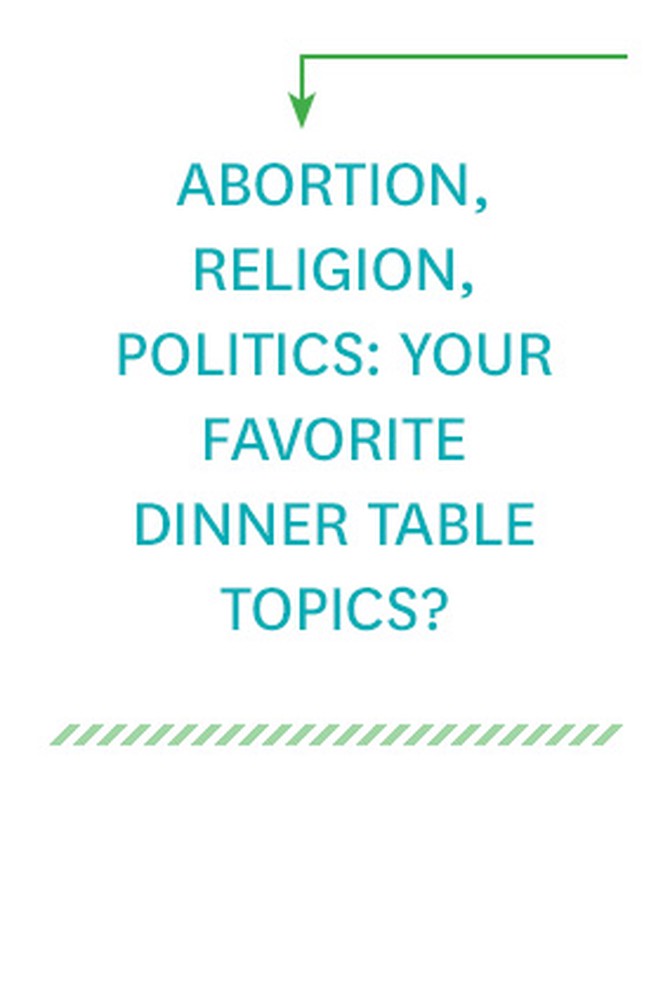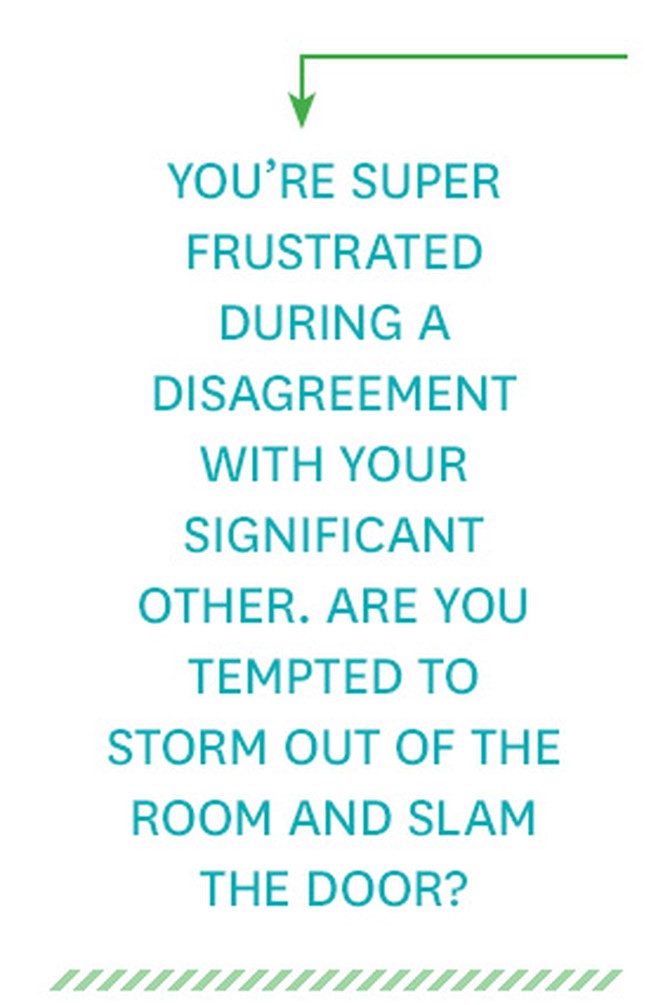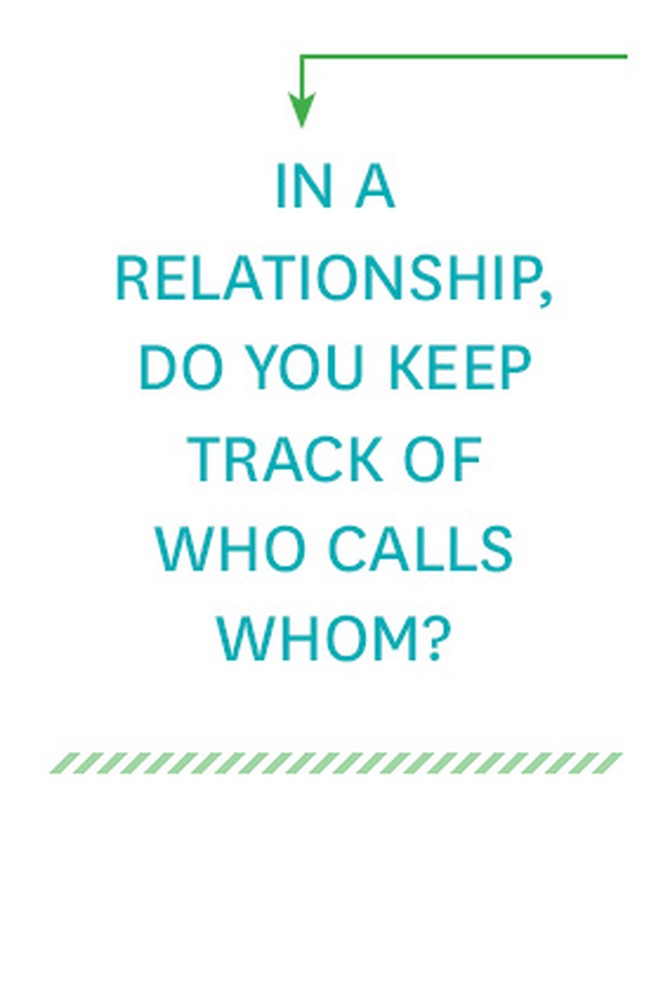Quiz: What's Your Conflict Style?
Whether you love a good argument or scurry at the first hint of a raised voice, how you handle discord can affect your happiness and health. Take this quiz to identify your fighting style.
Exercise created by Debbie Mandel

Illustration: Jen Troyer
You thrive on accomplishment, so you tend to see conflict as a winner-takes-all competition, even if it means resorting to jabs or low blows when tensions spike.
Rules of Engagement: When emotions run high, avoid fueling the fight with generalizations ("You're never there for me") or long-buried slights ("You barely talked to me at last year's party"). Recasting the point you want to make as a "feeling" statement ("I felt undervalued when you forgot my birthday") will help your opponent not get defensive. But if you sense that you're getting too heated, suggest tabling the conversation until you've had a chance to cool down.
This exercise was created by Debbie Mandel, author of Addicted to Stress: A Woman's 7-Step Program to Reclaim Joy and Spontaneity in Life (Jossey-Bass).
Next: How to solve workplace disagreements
Rules of Engagement: When emotions run high, avoid fueling the fight with generalizations ("You're never there for me") or long-buried slights ("You barely talked to me at last year's party"). Recasting the point you want to make as a "feeling" statement ("I felt undervalued when you forgot my birthday") will help your opponent not get defensive. But if you sense that you're getting too heated, suggest tabling the conversation until you've had a chance to cool down.
This exercise was created by Debbie Mandel, author of Addicted to Stress: A Woman's 7-Step Program to Reclaim Joy and Spontaneity in Life (Jossey-Bass).
Next: How to solve workplace disagreements

Illustration: Jen Troyer
Cucumbers have nothing on your cool facade—even when you're hurt or stressed, your smile doesn't waver. But people-pleasing can be a dead end: Your opponent doesn't know what you truly want, and you're mad at yourself for saying one thing when you mean another.
Rules of Engagement: Stating what you really think may feel abrasive at first, but it grows easier with time. If you're flustered by a request, resist a knee-jerk assent. Instead, use a set answer—"Let me check my calendar first"—so you can respond after giving it some thought. If you feel pressured to bow to someone's opinion, an empathetic statement ("I understand where you're coming from") can placate an opponent without compromising your stance.
This exercise was created by Debbie Mandel, author of Addicted to Stress: A Woman's 7-Step Program to Reclaim Joy and Spontaneity in Life (Jossey-Bass).
Next: How to solve workplace disagreements
Rules of Engagement: Stating what you really think may feel abrasive at first, but it grows easier with time. If you're flustered by a request, resist a knee-jerk assent. Instead, use a set answer—"Let me check my calendar first"—so you can respond after giving it some thought. If you feel pressured to bow to someone's opinion, an empathetic statement ("I understand where you're coming from") can placate an opponent without compromising your stance.
This exercise was created by Debbie Mandel, author of Addicted to Stress: A Woman's 7-Step Program to Reclaim Joy and Spontaneity in Life (Jossey-Bass).
Next: How to solve workplace disagreements

Illustration: Jen Troyer
You're a great negotiator and a crackerjack problem solver. During conflicts, your first impulse is to smooth things over ("If you're upset that I canceled our lunch, why don't we get together tomorrow instead?"). Your quick-fix knack is noble, but it can prompt you to act before you fully understand the situation—or how you feel about it.
Rules of Engagement: To combat your instinct for action, practice becoming an attentive listener. Rather than proposing a fix, ask the person, "How can we come up with a solution that's good for both of us?" To show that you're listening, focus on your body language: Shoulders back and down conveys receptivity to others.
This exercise was created by Debbie Mandel, author of Addicted to Stress: A Woman's 7-Step Program to Reclaim Joy and Spontaneity in Life (Jossey-Bass).
Next: How to solve workplace disagreements
Rules of Engagement: To combat your instinct for action, practice becoming an attentive listener. Rather than proposing a fix, ask the person, "How can we come up with a solution that's good for both of us?" To show that you're listening, focus on your body language: Shoulders back and down conveys receptivity to others.
This exercise was created by Debbie Mandel, author of Addicted to Stress: A Woman's 7-Step Program to Reclaim Joy and Spontaneity in Life (Jossey-Bass).
Next: How to solve workplace disagreements

Illustration: Jen Troyer
You tend to think before speaking, so you're less likely to say things you regret. But you're also prone to holding your tongue in the hope that others will read your mind; when they don't, you get irritated.
Rules of Engagement: Before you head into a tense situation, draw up a communication cheat sheet, listing your needs ("I wish Liz would call me more often") and how you'll convey them ("I'll say, 'Liz, I feel hurt when you don't make an equal effort to see me'"). When you see your opportunity to speak up, recall the cheat sheet. If the thought of direct confrontation makes you shudder, talk to the person while doing an activity, like walking or driving, that doesn't require eye contact. Side-by-side conversations foster more openness.
This exercise was created by Debbie Mandel, author of Addicted to Stress: A Woman's 7-Step Program to Reclaim Joy and Spontaneity in Life (Jossey-Bass).
Next: How to solve workplace disagreements
Rules of Engagement: Before you head into a tense situation, draw up a communication cheat sheet, listing your needs ("I wish Liz would call me more often") and how you'll convey them ("I'll say, 'Liz, I feel hurt when you don't make an equal effort to see me'"). When you see your opportunity to speak up, recall the cheat sheet. If the thought of direct confrontation makes you shudder, talk to the person while doing an activity, like walking or driving, that doesn't require eye contact. Side-by-side conversations foster more openness.
This exercise was created by Debbie Mandel, author of Addicted to Stress: A Woman's 7-Step Program to Reclaim Joy and Spontaneity in Life (Jossey-Bass).
Next: How to solve workplace disagreements
From the August 2012 issue of O, The Oprah Magazine

